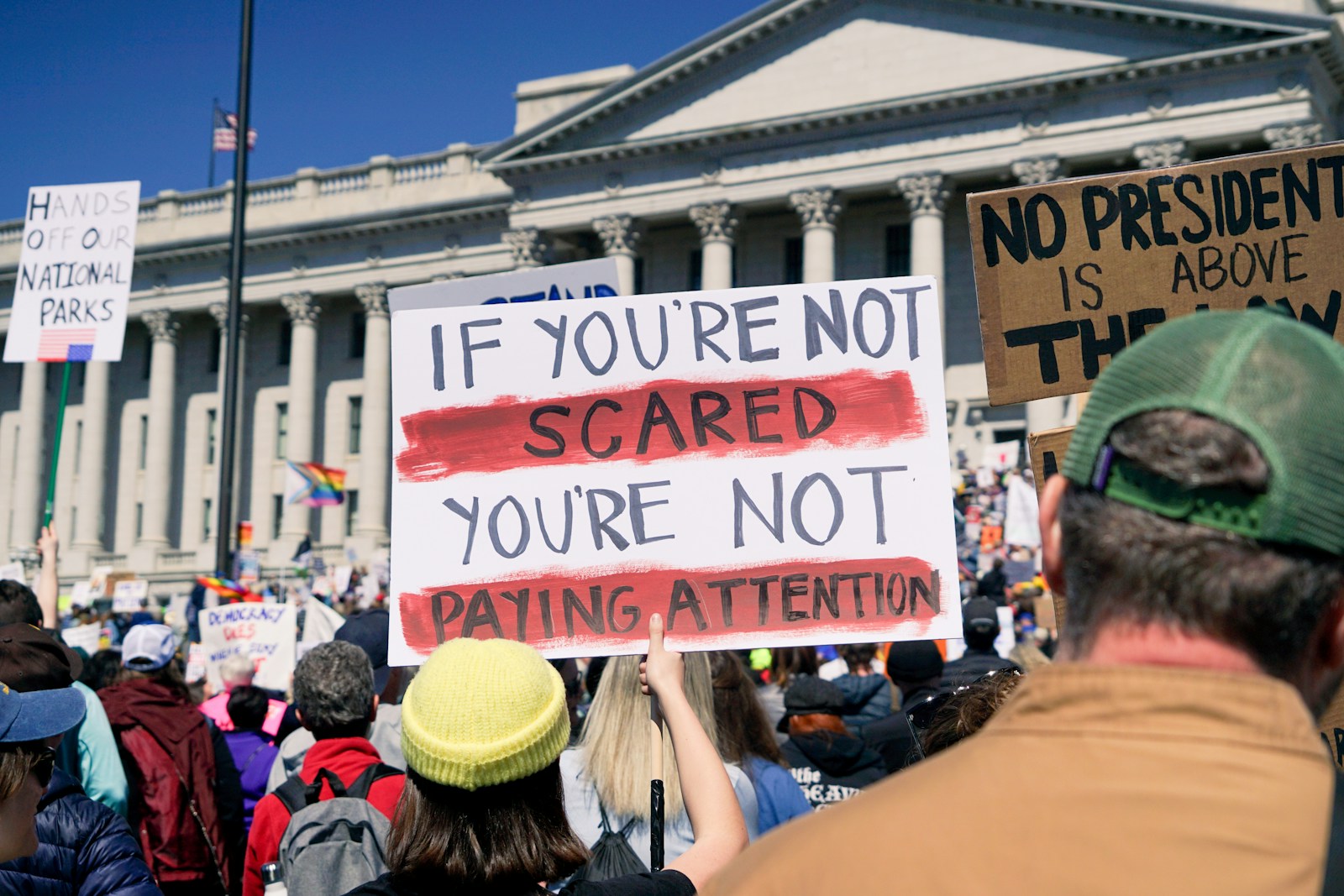In 2025, the United States is not merely approaching authoritarianism—it is experiencing it in real time. What has kept the nation from falling completely into fascism is not the strength of its institutions, but the incompetence of Donald Trump. That’s a terrifying truth. For all the chaos of Trump’s first term, it was his disorganization, impulsiveness, and inability to execute policy with precision that kept his more authoritarian ambitions at bay. Now, with a second term underway, he is more dangerous—not because he has changed, but because the people around him have.
What Trump lacks in discipline, he now compensates for with a playbook: Project 2025, crafted by think tanks aligned with his worldview, outlines a systematic dismantling of democratic checks and balances. The plan includes purging civil service protections, consolidating executive power, politicizing the Department of Justice, and reshaping American institutions to enforce ideological loyalty rather than uphold democratic values. What was once improvised is now planned.
The Justice Department, under loyalist Pam Bondi, has become a weapon of personal vengeance. Career attorneys have been fired en masse, and investigations into political critics, journalists, and civil society watchdogs are underway. The Department of the Interior is altering interpretive signage at national parks to whitewash the history of slavery and racism, pushing a sanitized and politicized version of American history. These are not symbolic acts. They are part of a broader authoritarian strategy: to rewrite the past, redefine the present, and control the future.
Authoritarian systems don’t always arrive with tanks and uniforms. Sometimes they show up wrapped in the flag, quoting the Constitution while gutting its meaning. Trump’s administration now exhibits many of the classic characteristics of fascist regimes: the dehumanization of scapegoated groups; a cult of personality built on loyalty over law; the erosion of judicial independence; the suppression of dissenting voices; and the aggressive use of state power to punish opposition and control information.
Trump’s war on immigrants and LGBTQ+ communities, particularly transgender individuals, has intensified. Rhetoric describing these groups as threats to the nation has been matched by policy: mass raids, restrictions on asylum, and the rollback of civil rights protections. These are not isolated policies. They are tools of division and control, designed to rally support through fear and establish a societal hierarchy built around conformity and submission.
Equally dangerous is the replacement of institutional norms with personal loyalty. The White House has floated the idea of purging judges who don’t conform to its agenda, and federal agencies are being repopulated with ideological loyalists. Democracy depends on a bureaucracy that serves the public, not a leader. The Trump administration is systematically dismantling that principle.
But perhaps the most shocking element of all is the near-total compliance of American civil society. In 2025, the loudest voices of outrage are not found in Congress, corporate boardrooms, or legacy media—they’re in isolated corners of academia, underground publications, and fragmented activist spaces. The very institutions once thought to be bulwarks against authoritarianism—major universities, media organizations, philanthropic foundations, tech giants—have largely acquiesced. Some have self-censored to avoid political targeting. Others have pivoted to neutrality in the name of access or profit. A few have even embraced the regime’s rhetoric, cloaking complicity in the language of “balance” or “patriotism.”
Non-profit organizations critical of the government have been investigated or defunded. Educational institutions have watered down their curricula to avoid federal scrutiny. Corporations, many of which publicly championed “social responsibility” during earlier political moments, now sit silently or even profit from contracts linked to new federal initiatives. Journalists who once held power to account have been replaced or marginalized. What should have been a fierce and united civil resistance has instead become a faint, fractured murmur.
This passive capitulation is not just cowardice—it is how authoritarianism consolidates power. It requires not mass agreement, but mass inaction. Silence becomes endorsement. Indifference becomes infrastructure.
The reality in 2025 is that the American public can no longer rely on Trump’s incompetence as a safeguard. The institutions that barely held during his first term are under direct and coordinated assault. And yet, a disturbing number of Americans remain distracted, numbed by years of political chaos and fatigued by endless outrage. The systems that once educated, informed, and mobilized society are now either neutralized or aligned with power.
This is how democracies die—not with dramatic declarations, but with slow erosion, with each new normalization of authoritarian behavior, with each news cycle that fails to capture the gravity of the moment. Trump didn’t need to stage a coup. He simply needed enough people to stop paying attention while he restructured the system from within.
If Trump had been more competent from the start, America might already be unrecognizable. That incompetence may have delayed the descent, but it has not prevented it. The second Trump administration is proving that authoritarianism doesn’t need perfection—it just needs persistence, impunity, and silence.
The future of American democracy now depends not on a return to normal, but on a reckoning with how close the country has come to losing itself—and how fully its civil society enabled it. Whether that reckoning will happen before the system becomes irreversible remains the final question.





